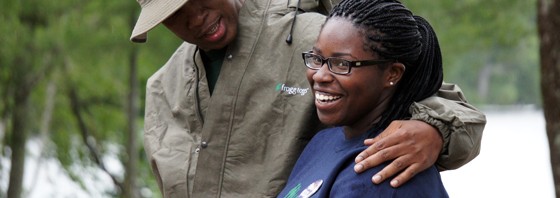Session for campers from the Middle East, South Asia, and US begins July 23
OTISFIELD, MAINE | Seeds of Peace is set to welcome young leaders from communities divided by conflict to kick off the 23rd summer of the Seeds of Peace Camp.
The first session of Camp begins on June 29, for over 110 teens ages 14-17 from across Maine as well as from Syracuse, New York. They will come together to tackle tensions within their schools and communities, from race and racism to immigration, policing, bullying, poverty, and education policy.
The second session begins on July 23 for over 180 Afghan, American, Egyptian, Indian, Israeli, Jordanian, Pakistani and Palestinian campers, who will participate in a flagraising ceremony to open the session and inaugurate three weeks of dialogue, leadership development, and relationship building across lines of conflict.
Adult educators from the same communities as the campers will also attend the second session of the Seeds of Peace Camp and participate in a parallel dialogue and professional development program.
The Camp will also host professional basketball players from the NBA who will conduct a hoops clinic for the campers on August 5 as part of the 14th Annual Seeds of Peace Play for Peace program.
Over the past 22 years, the Seeds of Peace Camp has graduated over 5,300 young leaders from communities divided by conflict as part of Seeds of Peace’s mission to inspire and cultivate new generations of leaders uniquely positioned to accelerate social, economic, and political changes essential for peace.
Media interested in covering Play for Peace or the July 23 Flagraising Ceremony in Otisfield should contact Eric Kapenga at eric@seedsofpeace.org.



